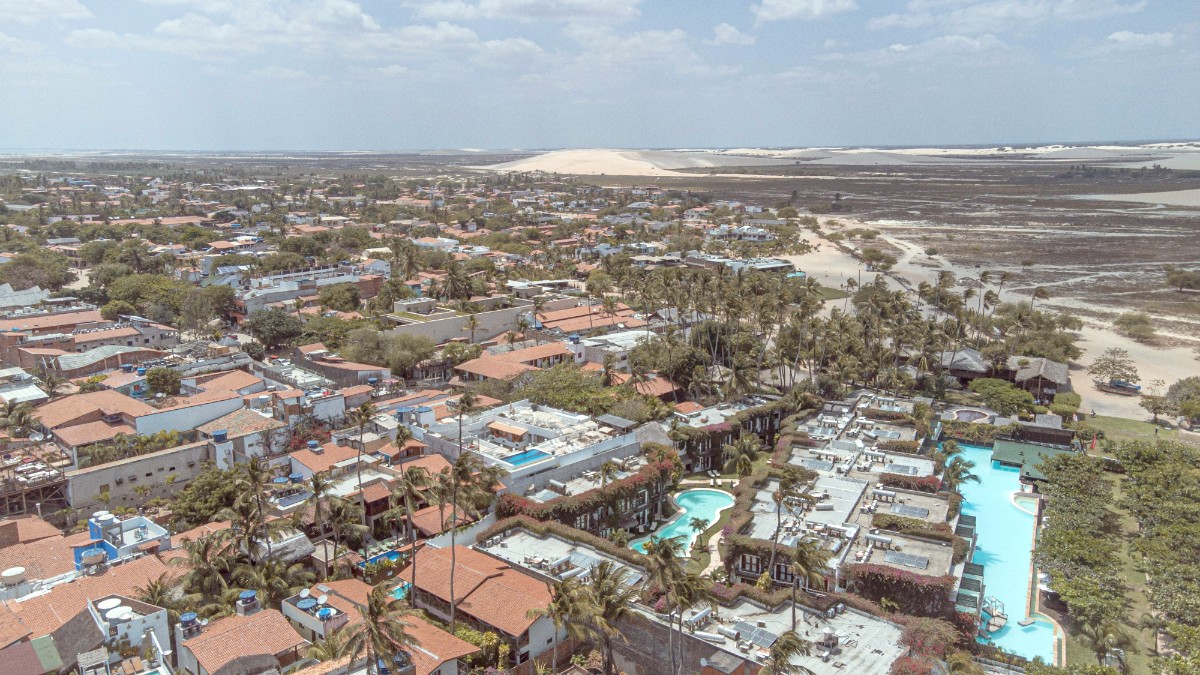
The Northeast, Brazil
The entire area is a federal protected area. It endeavors to conserve the fragile ecosystem of dunes, lagoons, and mangroves. Strict regulations govern construction, vehicle access, and waste disposal within its boundaries. This status preserves natural landscapes and biodiversity. Various local groups and businesses might engage in smaller conservation efforts, like beach cleanups or educational programs.
Jericoacoara faces ongoing challenges with waste management due to its remote location and high tourist influx. While waste collection efforts happen, you might sometimes see overflowing bins, especially during peak seasons. Recycling infrastructure in Jericoacoara is limited. Segregated recycling bins are not common. Minimize your waste. Dispose of trash properly in designated bins. Avoid single-use plastics where possible by bringing Reusable water bottles and Shopping bags. This greatly impacts your environmental footprint. Consider visiting Package Free Shop before your trip for eco-friendly alternatives.
Water is a precious resource, especially in coastal areas. Be mindful of your water usage, especially in showers and toilets. Take shorter showers. Report any leaks to your accommodation. Support establishments that practice water-saving measures.
Cultural sensitivity leads to respectful and positive interactions with locals.
The National Park status mainly preserves the natural landscape. This, in turn, helps maintain Jericoacoara's traditional fishing village character. Tourism brings significant changes. Cultural preservation efforts often come from community initiatives. They attempt to retain traditions and ensure economic development does not erode the local way of life.
As noted in section 11.3, generally, taking photos in public spaces is fine. However, the rule of asking permission before photographing individuals, specifically children, stands. Be mindful of privacy and avoid intrusive photography.
Some pousadas strive for eco-friendly practices. These might include solar heating, waste reduction programs, or sourcing local products. Inquire directly or look for certifications if sustainability is a priority for your accommodation choice. Consider booking through platforms like Ecobnb.
Find eco-friendly staysChoose tour operators who respect national park rules. They should stick to designated paths, use well-maintained vehicles, and educate visitors on environmental preservation. Support those that prioritize environmental protection, like G Adventures. For outdoor gear, explore brands committed to sustainability, such as Patagonia. Support conservation efforts via groups like The Rainforest Site (GreaterGood).
Explore ethical toursBring a reusable water bottle and refill it. Many pousadas and restaurants offer filtered water, helping you avoid single-use plastic bottles.
Responsible travel makes tourism a positive force for the local economy and community. Your choices as a traveler make a difference.
Directly support local businesses. Eat at local restaurants and eateries. Purchase from local artisans and craftspeople. Hire local buggy drivers and guides.
Look for products clearly made by local artisans. These often represent fair trade practices, where the creator receives a fair price for their work.
Your travel choices help uphold ethical standards. Avoiding harmful practices safeguards both the environment and community.
Avoid supporting activities that exploit animals. For instance, ensure horses used for rides appear well-cared for.
Do not purchase illegal goods or items made from endangered species.
Be cautious of scams or aggressive touts; stick to reputable, licensed operators. Research any tour or activity if you have concerns about its ethical implications.
Choose locally-owned pousadas and restaurants whenever possible. This makes your tourism dollars directly benefit the Jericoacoara community.
Appropriate charitable giving supports community needs sustainably.
If you wish to donate, do so through established local charities or community projects rather than giving directly to individuals, especially children. Direct giving encourages begging and creates unintended negative social dynamics.
For longer stays, consider volunteering your time and skills with a local project.
Minimize plastic use, dispose of waste properly.
Choose local businesses, purchase from artisans.
Ask for permission for photos, observe local customs.